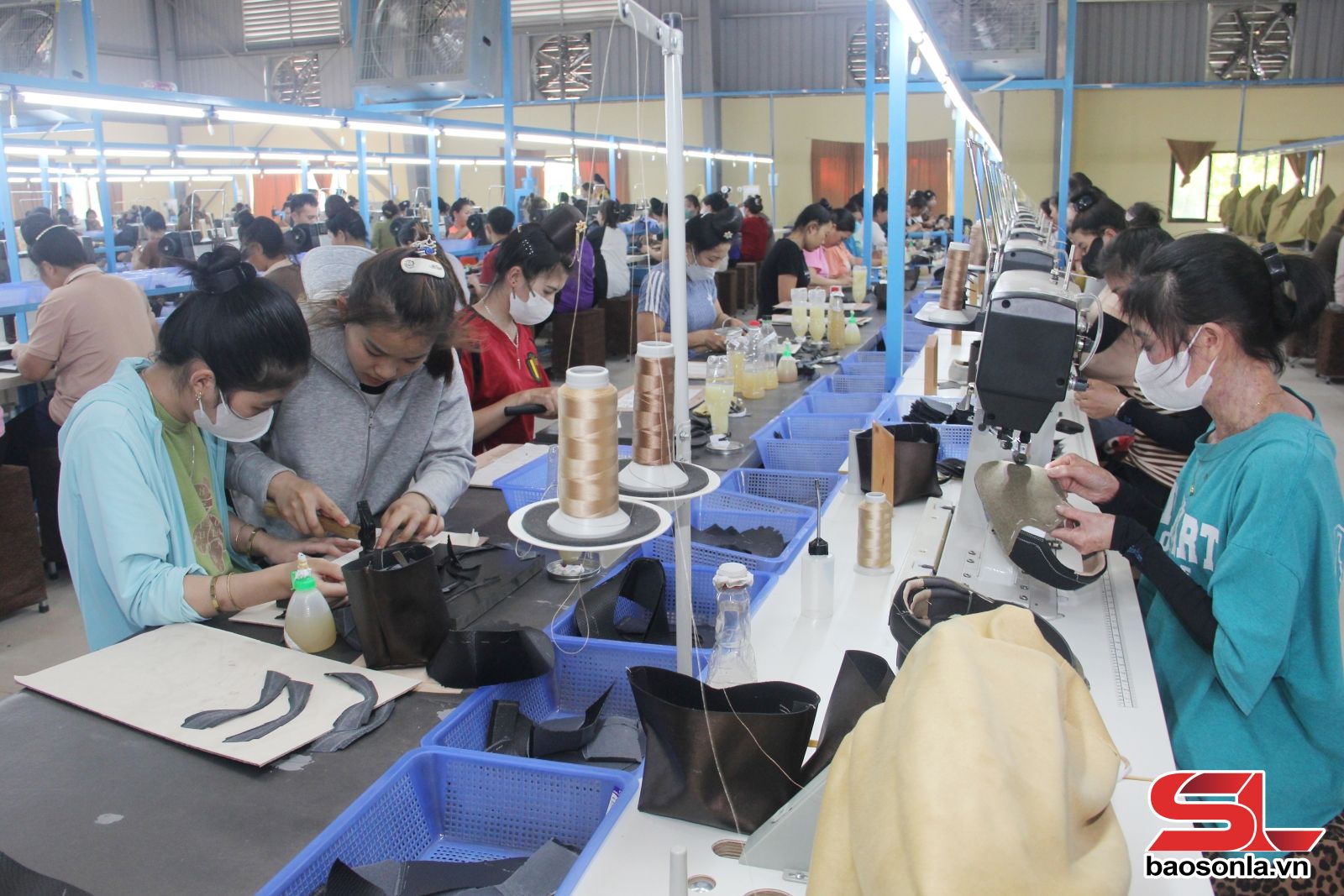.jpg)
The district People's Committee has directed specialised units and local authorities to disseminate vocational training policies, survey and classify the training needs of rural workers, and develop training programmes aligned with actual local conditions and labour market demands. In addition, employment information is provided to workers along with support to access training courses, technical transfer programmes, and development loans.
Me Van Hai, deputy head of Yen Chau district’s Division of Home Affairs, said: “We work closely with communes and towns to identify suitable professions for training based on labour needs. We also effectively utilise funds from national target programmes to organise short-term vocational training courses in crop care, livestock farming, industrial sewing, mechanics, construction, and more.” Furthermore, the district organises career guidance and job introduction events to help workers—especially youth and students—choose professions that match their abilities, interests, and market demand.
Since 2024, Yen Chau district has collaborated with the provincial Employment Service Centre and other units to organise four career and job counseling fairs, attracting nearly 150 businesses and more than 20,000 participants. In the past two years, the district has also partnered with major companies such as Brother Vietnam Co., Aurora Shoe Co., LG, and the College of Coal and Mineral Technology to provide career guidance, support for preparing applications for labour export to Japan, the Republic of Korea, and Europe for nearly 3,200 high school students. As a result, 50 workers have been sent abroad under contract and 3,000 ethnic minority workers have been offered counseling, training, and job placement. Currently, over 2,000 Yen Chau workers are employed at industrial zones in other provinces, earning an average monthly income of 6–12 million VND (231-462 USD).

Yen Chau Shoe JSC creates jobs for many local workers.
District agencies have proactively established partnerships with in-province businesses, such as Mai Son Cement JSC, Son La Sugar JSC, Song Lam Tay Bac Fertilizer JSC, and Yen Chau Shoe JSC, to recruit hundreds of rural workers with stable incomes. In April 2025, Quang Thi Hoa from Thin hamlet, Sap Vat commune, began working at Yen Chau Shoe JSC with a monthly salary of 5 million VND. She shared: “I received over a month of training before signing a labour contract. The job suits my health and provides me with a stable income, insurance and full benefits. The company is close to my house.”
Previously, residents of Phieng Khoai commune primarily grew plums using traditional methods, which resulted in low yield and quality. In recent years, thanks to participating in training courses on safe farming practices and applying science and techniques, economic efficiency has improved significantly. Nguyen Van Doanh in Con Huot 1 hamlet, Phieng Khoai commune, said: “My family has 5 hectares of plums. After training, I learned how to prune old branches, shape low canopies for easier care and harvesting, thin fruits during the setting season, apply organic fertilizer, and manage irrigation. As a result, my orchard yields over 40 tonnes of fruit per year, bringing in around 600 million VND.”
By the end of 2025, Yen Chau aims to have over 73% of its workforce trained. The district will continue linking employment services with vocational training, supporting labour market development, expanding career opportunities, raising incomes, reducing unemployment, curbing social issues, maintaining security and order, and contributing to sustainable poverty reduction.























You have 500/500 characters left
Please enter 5 or more characters!!!